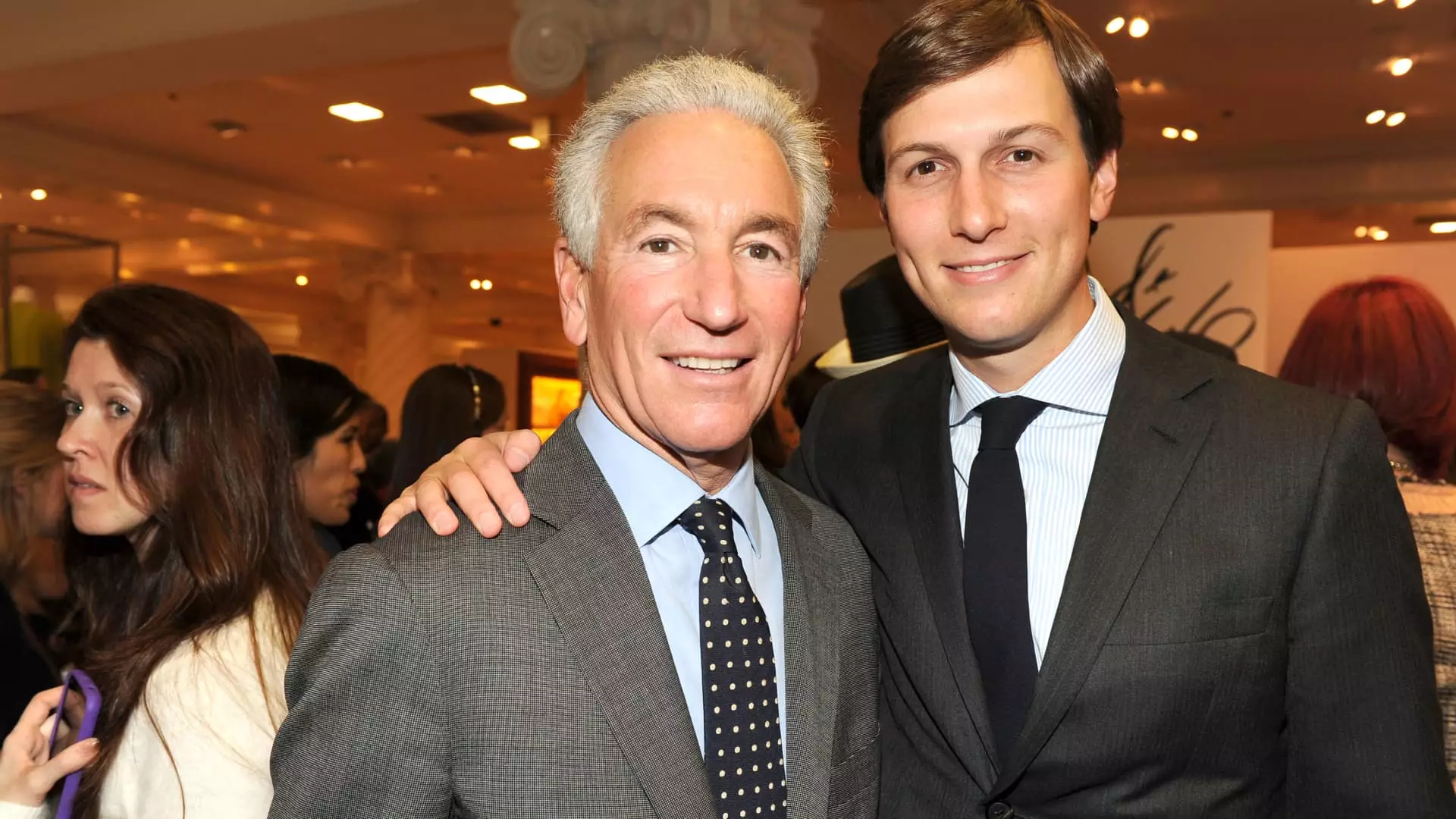The political landscape has become increasingly intricate and contentious, with the President-elect Donald Trump announcing a bold nomination that has ignited discussions across media platforms. He has proposed real estate developer Charles Kushner to serve as the ambassador to France, a decision steeped in controversy. In a post on Truth Social, Trump praised Kushner, referring to him as “a tremendous business leader, philanthropist, & dealmaker.” This statement has raised questions regarding the intertwining of familial connections, business acumen, and past legal transgressions.
Charles Kushner, the head of Kushner Companies and the father of Trump’s son-in-law Jared Kushner, is not an unfamiliar name in both business and political circles. His selection seems to suggest that Trump’s approach hinges on loyalty and personal relationships rather than strictly on qualifications. This perspective can be viewed as a reflection of broader trends in his administration’s personnel choices, where familial ties and prior friendships frequently supersede traditional assessments of merit.
However, Charles Kushner’s past complicates his nomination. In 2005, he was convicted on 18 counts, including tax evasion and witness tampering. The incidents surrounding his legal issues are especially alarming; he orchestrated a revenge scheme involving a hired individual that culminated in compromising materials being sent to his own family member. Such actions have led critics to label his past as not just controversial, but morally repugnant. Chris Christie, the former U.S. attorney who prosecuted him, has been vocally critical, referring to Kushner’s crimes as among “the most loathsome, disgusting” he had ever encountered.
This nomination, therefore, raises significant ethical questions. On one hand, advocates for Kushner could argue that his business experience might serve well in diplomatic endeavors, considering the intricate relationship between economic interests and international diplomacy. Conversely, skeptics fear that this appointment could serve to normalize and legitimize past misconduct, potentially undermining the integrity of the office.
Trust is a cornerstone in international relations, and Kushner’s history could have implications for the U.S.-France partnership. If confirmed, his ability to forge relationships and maintain credibility will be heavily scrutinized. Critics question whether someone with such a checkered past can effectively represent American interests abroad and navigate the often-complex world of global diplomacy.
Moreover, observers speculate on the motives behind Trump’s choice. Is this a strategic move to reinforce a loyal ally at a time when his administration could face future scrutiny? The intertwining of personal and professional relationships can often lead to an insular decision-making process that may overlook broader implications.
As this nomination unfolds, it is essential to monitor the discussions and debates that emerge around it. The intersection of political appointments, personal relationships, and ethical considerations continues to be a dynamic arena. In the case of Charles Kushner, Trump’s decision not only touches on individual merit and qualifications but also opens the door to questions about morality, loyalty, and the potential repercussions on international partnerships. The ramifications of this nomination extend far beyond the individual, echoing the critical need for accountability in public office.


Leave a Reply